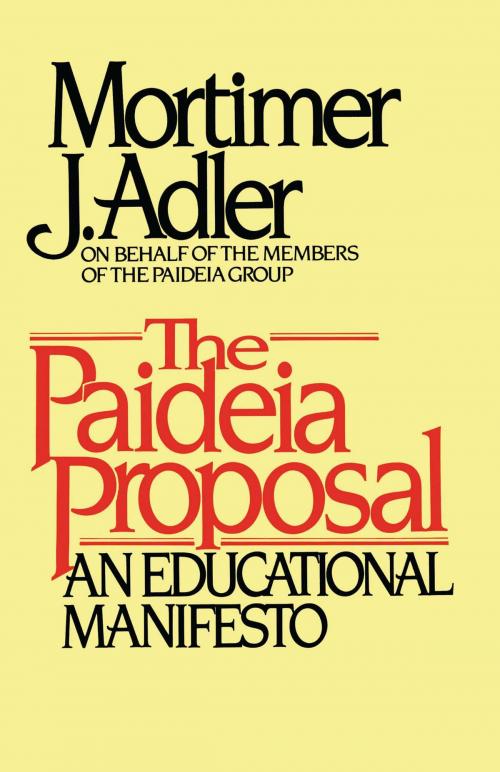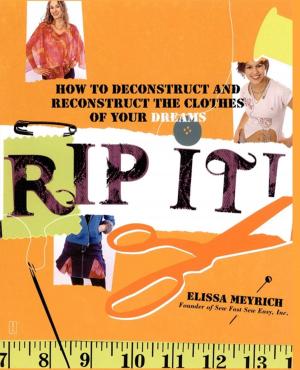Paideia Proposal
Nonfiction, Reference & Language, Education & Teaching, Educational Theory, Curricula, Philosophy & Social Aspects, Reference| Author: | Mortimer J. Adler | ISBN: | 9781439104903 |
| Publisher: | Touchstone | Publication: | October 1, 1998 |
| Imprint: | Touchstone | Language: | English |
| Author: | Mortimer J. Adler |
| ISBN: | 9781439104903 |
| Publisher: | Touchstone |
| Publication: | October 1, 1998 |
| Imprint: | Touchstone |
| Language: | English |
The Paideia Proposal is a system of liberal education intended for all children. It was a response to what Adler characterized as the United States' antidemocratic or undemocratic educational system, a holdover from the 19th century, when the understanding of basic human rights fell short of 20th century expectations.
The Paidea Proposal was based upon the following assumptions: 1) All children are educable; 2) Education is never completed in school or higher institutions of learning, but is a lifelong process of maturity for all citizens; 3) The primary cause of learning is the activity of the child's mind, which is not created by, but only assisted by the teacher; 4) Multiple types learning and teaching must be utilized in education, not just teacher lecturing, or telling; and 5) A student's preparation for earning a living is not the primary objective of schooling.
Adler stressed that the proposal is much more than just a return to the basic skills of reading, writing and arithmetic. It is not simply a return to the values of classical civilization, but a return to what is of enduring value. It is a democratic proposal intended for the education of all, and not an elitist program as some have alleged.
The Paideia Proposal is a system of liberal education intended for all children. It was a response to what Adler characterized as the United States' antidemocratic or undemocratic educational system, a holdover from the 19th century, when the understanding of basic human rights fell short of 20th century expectations.
The Paidea Proposal was based upon the following assumptions: 1) All children are educable; 2) Education is never completed in school or higher institutions of learning, but is a lifelong process of maturity for all citizens; 3) The primary cause of learning is the activity of the child's mind, which is not created by, but only assisted by the teacher; 4) Multiple types learning and teaching must be utilized in education, not just teacher lecturing, or telling; and 5) A student's preparation for earning a living is not the primary objective of schooling.
Adler stressed that the proposal is much more than just a return to the basic skills of reading, writing and arithmetic. It is not simply a return to the values of classical civilization, but a return to what is of enduring value. It is a democratic proposal intended for the education of all, and not an elitist program as some have alleged.















